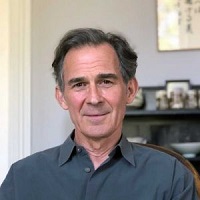
What are the Moral Implications of the Non–Dual Understanding? | Rupert Spira
The non-dual understanding brings an end to the belief in being a separate self as well as to the doctrines, philosophies and religious beliefs associated with that belief. How, then, can we maintain ethical and moral standards, and what should we do when someone who claims to have this understanding behaves in ways that are not in line with it?
Rupert Spira is an English teacher of the “direct path”, a method of spiritual self-inquiry through talks and writing, and a notable English studio potter with work in public and private collections. From an early age, Rupert Spira was deeply interested in the nature of reality. At the age of seventeen, he learned to meditate and began studying and practicing the teachings of the classical Advaita Vedanta tradition under the guidance of Dr. Francis Roles and Shantananda Saraswati, the Shankaracharya of the north of India, which he continued for the next twenty years. During this time he immersed himself in the teachings of P. D. Ouspensky, Krishnamurti, Rumi, Ramana Maharshi, Nisargadatta, and Robert Adams, until he met his teacher, Francis Lucille, in 1997. Francis introduced Rupert to the Direct Path teachings of Atmanada Krishna Menon and to Jean Klein and the Tantric tradition of Kashmir Shaivism, and, more importantly, directly indicated to him the true nature of experience.